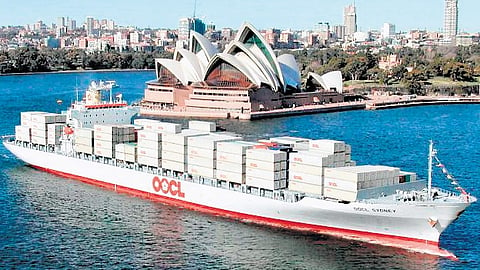

India and Australia have long shared a relationship rooted in history, democratic values and mutual respect. Both nations, members of the Commonwealth, operate under similar legal frameworks and parliamentary democracies. But it is their economic partnership that has recently taken centre-stage, setting the tone for a dynamic future.
In December, the two countries marked two successful years of the Australia-India Economic Cooperation and Trade Agreement (ECTA), which came into force on December 29, 2022 and stands as a milestone in bilateral trade relations. As India’s first free trade agreement with a developed nation in over a decade, it signalled a significant step forward. The agreement is not merely a transactional arrangement; it is an institutional framework designed to facilitate and nurture trade ties, covering almost every tariff line exchanged between the two nations.
While trade figures between India and Australia saw a dip of 7.17 percent in 2023-24, this decline mirrors broader global trade trends. However, Australia remains India’s 13th-largest trading partner––a testament to the resilience of this relationship.
More importantly, the agreement has brought tangible benefits: over 85 percent of Australian exports to India are now tariff-free, a figure set to rise to 90 percent by January 2026. Simultaneously, 96 percent of Indian exports to Australia currently enjoy tariff-free status, with full coverage expected by the same date.
These tariff reductions translate into real opportunities. Indian industry sectors like textiles, apparel, agriculture, leather, footwear, furniture and pharmaceuticals are now better positioned in the Australian market. These are labour-intensive sectors brimming with export potential and are poised to benefit immensely from reduced trade barriers.
For Australia, ECTA offers a gateway to one of the world’s largest and fastest-growing consumer markets. With a population exceeding 1.4 billion, India represents unparalleled opportunities for trade diversification and economic collaboration.
ECTA also addresses structural and technical barriers that historically limited bilateral trade. A dedicated annexure on pharmaceuticals, for example, paves the way for mutual recognition of pharmaceutical products, reducing bureaucratic hurdles for Indian pharma companies. Additionally, Australia’s commitment to amending domestic tax laws to prevent double taxation on offshore income of Indian IT firms is expected to save these businesses up to $1 billion––a game-changing move for the tech industry.
The ECTA will benefit India and Australia in various ways. Firstly, it will enhance services trade between the two nations. The commitments align with India's current settings or obligations under other trade agreements. Australian service suppliers will gain full or partial access to over 85 Indian services sectors and subsectors, with India also benefiting from enhanced access to the Australian services market.
Secondly, the ECTA includes provisions on mobility that will open opportunities for Indian students and professionals, promoting trade and business ties. The agreement ensures access for skilled professionals, investors and business visitors from both nations, facilitating smoother investment processes and providing greater business certainty.
Australia's mobility commitments to India uphold the integrity of its visa system, aligning with existing visa policies and previous free trade agreements. These commitments cover categories of entrants, duration of stay, and provisions for spouses and dependents.
Finally, the ECTA will establish a professional services working group to streamline the recognition of qualifications, licensing and registration procedures through mutual recognition arrangements between professional bodies. Both countries have committed to encouraging their professional services organisations to negotiate agreements on qualifications, licensing, and registration. This initiative creates a strong platform for professional collaboration, building stronger ties between counterpart organisations.
The India-Australia agreement represents more than a policy document; it is a vision for shared prosperity. With ECTA as the bedrock, India and Australia are poised to redefine not just their trade ties, but their role as economic powerhouses in the Indo-Pacific region.
The momentum does not stop here. Negotiations for a Comprehensive Economic Cooperation Agreement (CECA) are already underway. CECA aims to build upon ECTA’s foundation, with a broader scope and deeper economic integration. We look forward to its early conclusion that will further elevate bilateral economic relations and take it beyond trade and investment.
(Views are personal)
(cb@cii.in)
Chandrajit Banerjee | Director General, CII